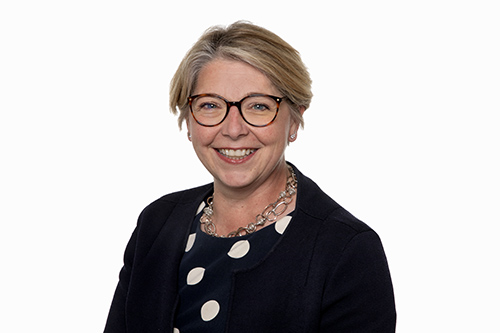
Bank of England deputy governor Sarah Breeden has become less concerned about rising inflation in the UK economy and has “shifted to thinking about how long rates need to remain at their current level”.
Breeden, who is also a member of the Monetary Policy Committee, was one of six policymakers who voted to leave rates on hold at a 16-year of 5.25% last week — outvoting two who wanted a rise and Swati Dhingra who pushed for a cut.
But in a speech today, the central bank deputy governor says she has seen evidence of easing wage growth and lower company price rises that have led to inflation falling faster than expected.
Inflation ended the year at 4% in December, which Breeden says is “a little over half a percentage point lower than we expected at the time of the November Monetary Policy Report and down from over 11% at its peak in October 2022”. The Bank targets a 2% inflation rate.
She adds: “I have become less concerned that rates might need to be tightened further. Instead, my focus, and indeed the focus of many on the Monetary Policy Committee, has shifted to thinking about how long rates need to remain at their current level.”
But the deputy governor adds there are risks that might embed inflation in the economy and prevent the committee from cutting rates.
She says that “the resilience in the housing market may prove to be a signal that demand is stronger than we expect”.
Breeden adds that although wage growth has eased in recent weeks “annual pay growth which remains in the 6% to 7% range — still elevated and, given the current weakness in productivity growth, several percentage points higher than what is consistent with the inflation target were they to persist”.
She adds: “I will look at how pay growth and demand are influencing firms’ pricing decisions, to assess how persistence is evolving in relation to what is embodied within our forecast.”
However, external Monetary Policy Committee member Dhingra said that the body was “underplaying the downside risks” for the UK economy, which ran the risk of tipping it into a recession, in a Financial Times interview yesterday.
Dhingra, who is the associate professor of economics at the London School of Economics, said: “I’m not fully convinced there’s some kind of really sharp excess demand in the economy coming from the consumption side.”
“You might see the real economy start to get negatively hit in a more profound way — and I don’t see why we should be risking that.”



